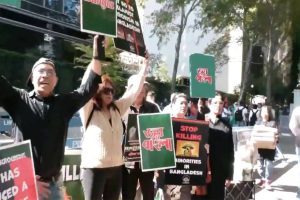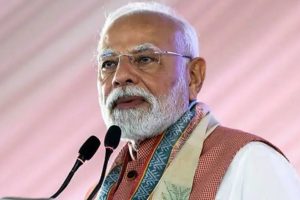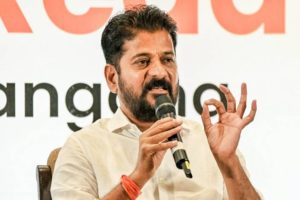The 76-year-old Sheikh Hasina has been in power for 15 straight years — the longest-serving leader in Bangladesh’s history — and tenure has been marked by allegations of authoritarian rule, targeting of the opposition, suppression of people’s rights and large-scale vote rigging in elections held to keep her in power, a media report said.
As she seeks a record fourth term in the January 7 general elections, the main opposition Bangladesh Nationalist Party (BNP), led by ailing former Prime Minister Khaleda Zia, has decided to boycott the vote, as it did in 2014, Al Jazeera reported.
Zia, 78, was jailed for more than two years over corruption charges and was moved to house arrest over health concerns in 2020.
The BNP says it does not have any confidence in Hasina presiding over a free and fair election.
It demanded Hasina step down to make way for a caretaker government to organise the vote.
But the demand was met with a severe government crackdown, which saw tens of thousands of BNP members arrested and at least 11 of them killed by security forces during street protests, raising concerns over valid elections in the garments hub of the world, Al Jazeera reported.
In September, the US, the top buyer of Bangladeshi garments, said it was Imposing a visa ban on the country’s officials who undermine the democratic election process.
Two months later, the Human Rights Watch condemned the arrests of opposition members and said “the government’s autocratic crackdown will jeopardise future economic cooperation” with other countries, Al Jazeera reported.
Since the opposition’s boycott call, Hasina’s party had been scrambling to field independent – or “dummy” – candidates to make the election look fair.
To ensure the results are in favour of the ruling party, the government is allegedly using law enforcement machinery and intelligence agencies to intimidate and threaten independent candidates, Al Jazeera reported.
“This election is a charade,” prominent Bangladeshi rights activist Shahidul Alam told Al Jazeera.
“It’s a mockery of our democracy – whatever is left of it.”
The BNP has not only boycotted the election but has also announced a non-cooperation movement, asking people not to vote on in the crucial polls.
As a result, the ruling Awami League’s main concern at the moment is to ensure a “reasonable” voter turnout, according to its official Bahauddin Nasim.
To do that, the party has allegedly resorted to “undue” measures.
In many constituencies, members of the ruling party have been accused of threatening to strip people of the government’s social benefits schemes if they fail to appear in polling booths on election day, Al Jazeera reported.
Rumeen Farhana, the BNP’s international affairs secretary, told Al Jazeera that participating in an election, knowing it will be rigged, was “suicidal and a betrayal to the thousands who were hurt, detained, tortured, or killed for democracy and free speech”.
“People of this country will remember this election as the most absurd and illegitimate one in its history,” she said.
Michael Kugelman, director of the South Asia Institute at the Wilson Center in the US, said the BNP boycott does the Awami League a “big favour by making it harder for Western countries to conclude that the election is fraudulent”.
He said the pattern of events leading to the BNP’s decision to boycott should be of concern to the West.
Ali Riaz, distinguished professor of politics and government at the Illinois State University in the US, thinks the BNP’s absence from the vote was always the most preferred option for the Awami League.
“Forcing the main opposition out of the election process is a strategy autocrats around the world tend to prefer,” he told Al Jazeera.
Riaz said the upcoming vote on Sunday does not meet the “basic standard of an election”.





